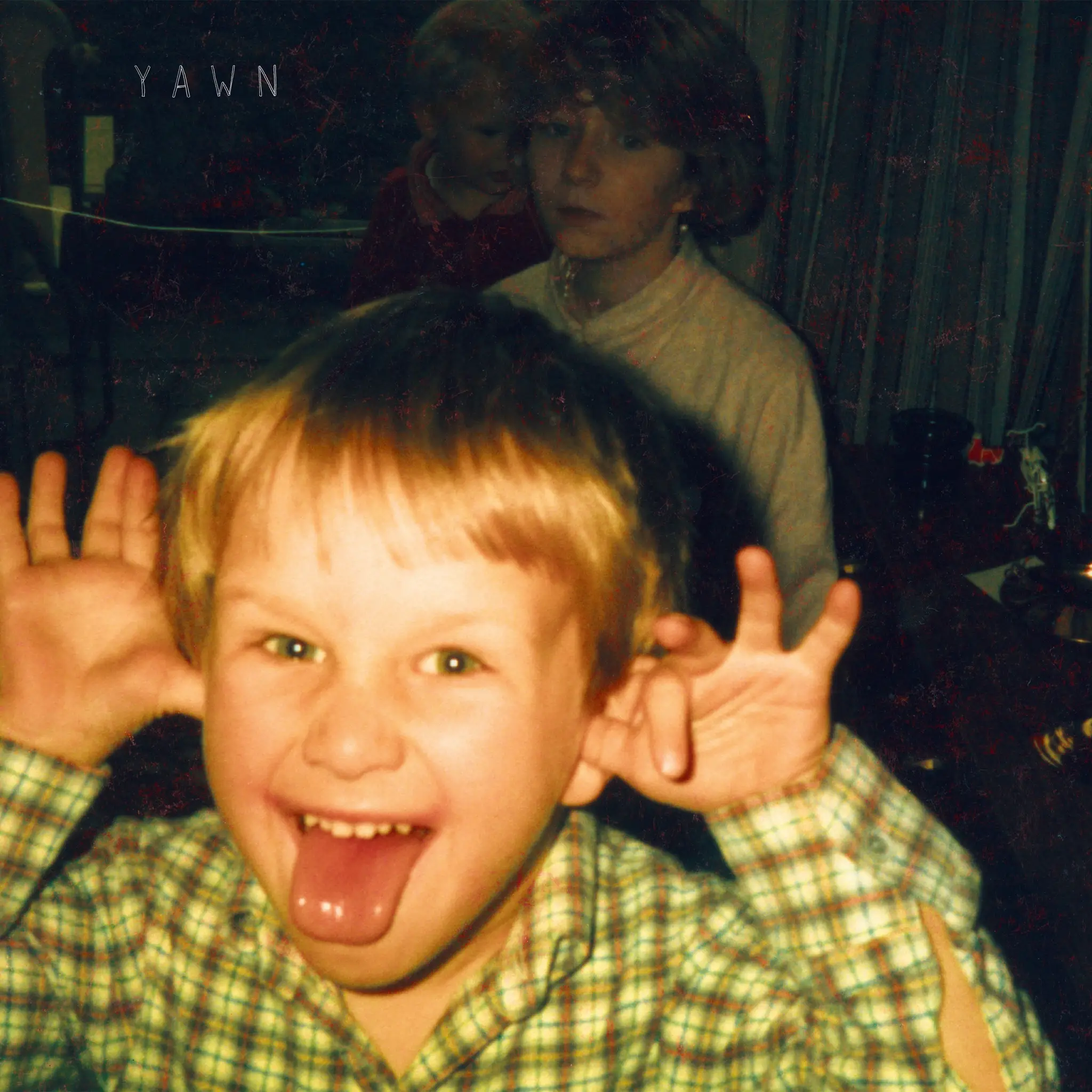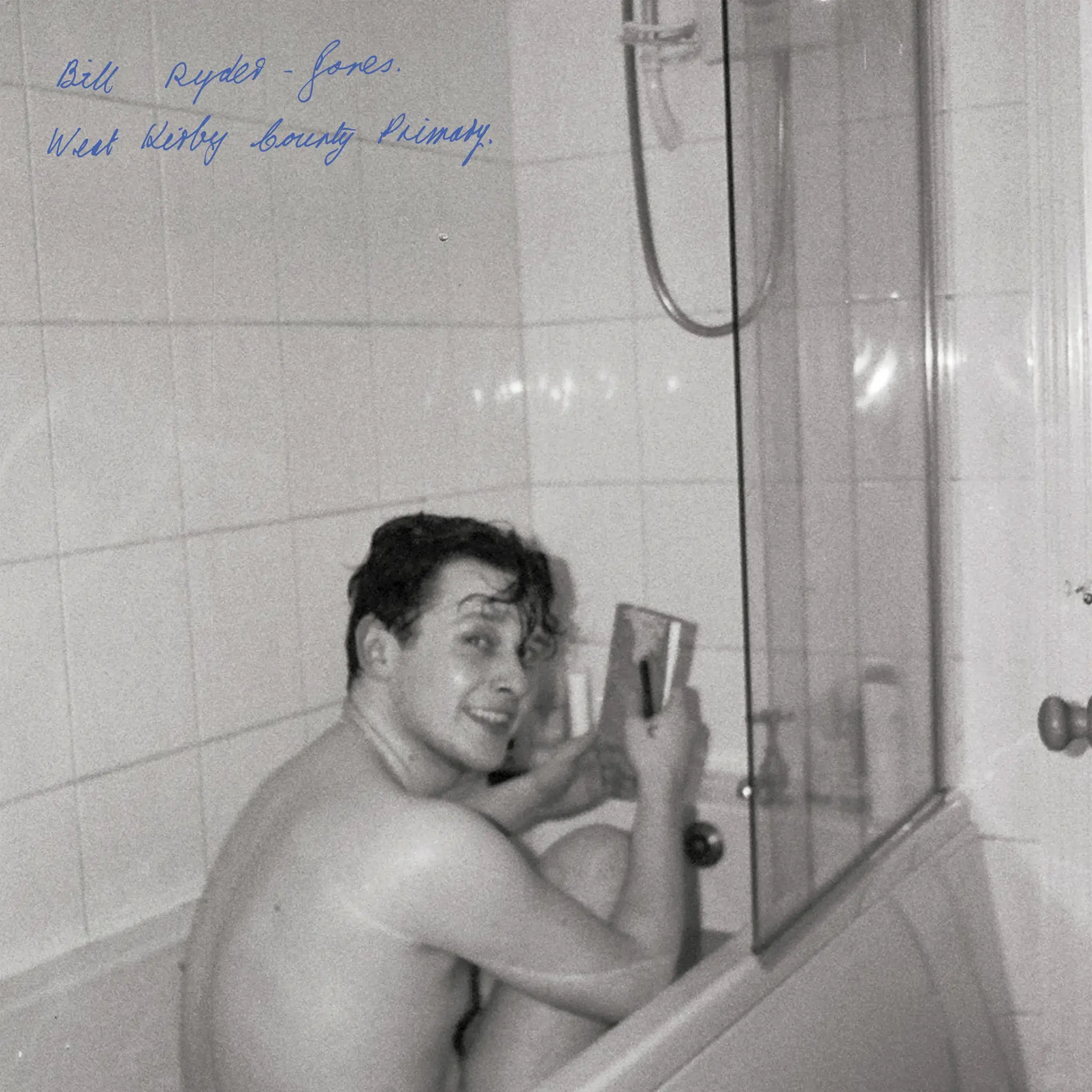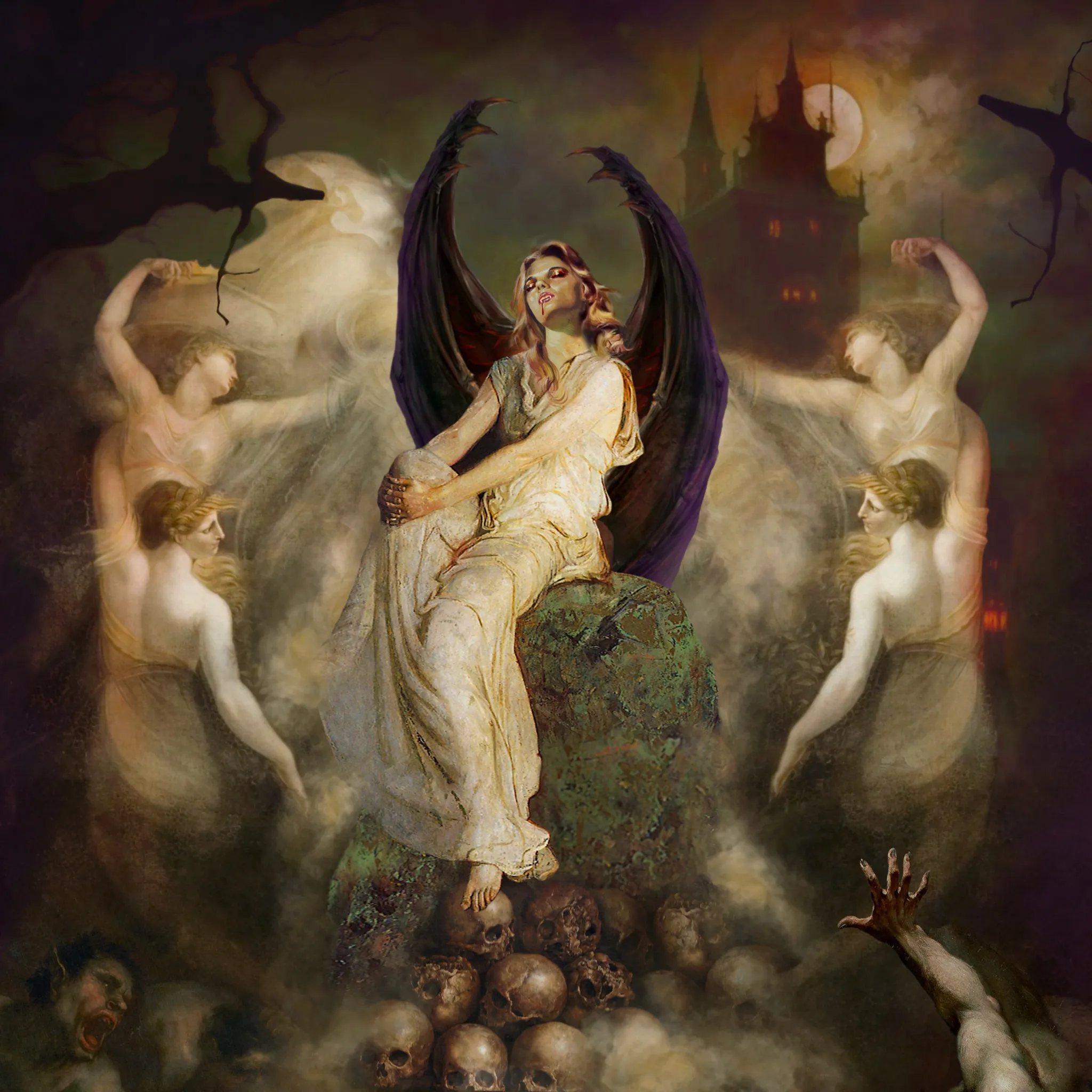Live Review
Field Day 2010
Apart from the very occasional hiccup, Field Day remains a triumph of good music.
The appeal of many summer festivals, year on year, is often founded on the promise of something. Most commonly, the promise of good music and unique live performances. However, people may also be snared by the promise of an enterprising opportunity to wear shorts, or the promise of large amounts of an apparently narcotic substance called ‘banter’. The problem is that these promises are just that: promises. Variables which are in no way guaranteed. Field Day isn’t like that. Field Day doesn’t have to promise anything. Where many other festivals will promise to pick you up from school and then forget, you can be sure that Field Day will always be waiting outside in its Ford Focus, regardless of how early you come out. In a general climate of uncertainty, discerning music fans can invest in Field Day in the confidence that, as a result of exceptionally high standards in composing line-ups, the event will always be good. Aside from teething scheduling issues which are, frankly, to be expected at a festival confined to one day, this year’s edition is by no means an exception to this formula, with an excellent collection of acts scattered across stages inclined to cater for most tastes.
Right beside the gate, the fibrous, masterful beat of Simian Mobile Disco’s DJ set welcomes us. As do rich wafts of weed. But mostly the fibrous, masterful beat of Simian Mobile Disco’s DJ set. Nevertheless, we promptly step over to the Adventures in the Beetroot Field stage, arguably playing host to the most impressive bands today, in time to witness These New Puritans grab the concept of distinct genres of music by the scruff of the neck and throw it out of a fifth-storey window. Even before the set begins, we note the not insignificant incidence of brass instruments on stage, reanimating the promise shown in orchestral performances of second album ‘Hidden’ earlier in the year. And, just as well, the band emerge to a crawling riff note and unforgiving drum beat, unmistakeably prophesising ‘We Want War’, with Jack Barnett, clad in chainmail once again, insisting on our forced recognition of their new, sodden aesthetic, though eager in addition to indicate the airs of new wave that remain. What follows is an immaculate execution of an attentive setlist, helping to capture the nihilism of ‘Hidden’, a distant relative at best to ‘Beat Pyramid’, while the entirely enclosed form of the stage, and some slightly awry tuning, means that George Barnett’s behemoth percussion is very much the focus of the performance, particularly for those watching from afar. Even ‘Elvis’ sounds colder, more pensive, making novel use of heavy voice distortion for the chorus and an extended, glittering conclusion, giving the song new life. Closing with ‘Infinity ytinifni’, These New Puritans succeed in presenting a performance worthy of the audible brutality they produce.
We hop over to the Village Mentality tent next, where we notice that Ben Jacobs, AKA Max Tundra, has arranged the stage in such a way that most of the space is reserved solely for his dancing. As expected, the human instrumental skeleton key does not disappoint a crowd that, though modest in size at first, grows inexorably. Upon appearing Tundra dives immediately into ‘Orphaned’ a four-minute muscle spasm of electronic equipment set to the backdrop of a story of childhood hardship, much to the delight of the intimate, clearly loyal audience. From this point, the set is riddled with favourites, during which Jacobs flits from ‘Which Song’ to ‘Will Get Fooled Again,’ his charming references to pop culture becoming ever more abundant, to the unlikely club-inspired ‘The Entertainment’, seldom indulging in any gaps between songs. And then, right on cue, out comes your grandad’s thumb piano. No-one knows where it came from, but it’s there. And, in the most curious way, it sits right at home in an instrumental setup of largely electronic nature. This is because Ben Jacobs flaunts these obtuse styles and talents, disassociated with genre and almost reluctantly put together, with complete sincerity, and for this at least he deserves credit. For making his vision work, with catalyst of his own musicianship, so well, especially live, he deserves another accolade entirely. As ‘A Truce’ is somehow contorted by him into a rendition of Beyonce’s ‘Single Ladies (Put A Ring On It)’, this trajectory becomes all the more untenable.
It’s at around this point that the festival’s perhaps only handicap begins to show. The fact that a number of popular bands are scheduled to play at roughly the same time as each other, coupled with the fact that an official timetable for the event was not available until on the day itself, means we miss The Fall. Or maybe it just means we should send two people next year, rather than just me, and that I should shut up. Though no tangible compromise, we do, however, get to catch No Age, assisted quite suitably by the strapping speakers at the Beetroot Field stage. Consequently, we feel every kick of the bass drum fly past us during ‘Eraser’ and the distinctly tuneful ‘You’re A Target’ and, probably for the only time today, a moshpit quickly implodes at the front.
Nonetheless, the most gratifying and cerebral of experiences today is purveyed a little later on by Bradford Cox, under his moniker as Atlas Sound. There is something so unmistakeably humble about Cox. Be it the fact that he sets up for his performance himself, or that he performs today without the company of the remainder of the band, or that, regardless of which song is being played, a maximum of only three instruments are at work. The notion translates tangibly as Cox creates a tempest of sound, defined and sentient, using nothing more than a loop, effects pedal and acoustic guitar. The storm subsides in an instant, giving way to a one-in-a-million iteration of ‘Walkabout’, so far removed from its counterpart on record, now imbued with a heavy bassline and generally apprehensive outlook. It bleeds seamlessly into ‘Shelia’, the shift between tempos tight and mechanic, while the song itself, consistent with Cox’s tendency to splice and experiment live, is uncharacteristically lethargic, acquiring a new gravity. The whole set, devoid of pauses as it is, resembles itself the stream of consciousness in which its content was created.
Wondering around afterwards, we hear a sound in the distance. A scream, something akin to the cackle of a coyote. We get closer and discern its origin as the Eat Your Own Ears main stage. Coming closer still, we can make out Daniel Snaith at the front of the stage, craned over a microphone. The band behind him huddled together, completing the lineup of Caribou, are much less playing songs than working on them. And so continues the established study of rhythm that is their set, only augmented by Snaith’s choice of live instrumentation for his appearance today. As a result, ‘Odessa’, with its melody of many echelons and interspersed, muffled lyrics, packs a very unique vitality, while the circular ‘Swim’, driven entirely by a solitary beat, is all the more arresting for it.
Apart from the very occasional hiccup, thus, Field Day remains a triumph of good music. Irrespective of genre or style, every act we see today delivers an impeccable set, never hampered by their own actions, giving weight to the event’s reputation as the darling of good taste.
Read More
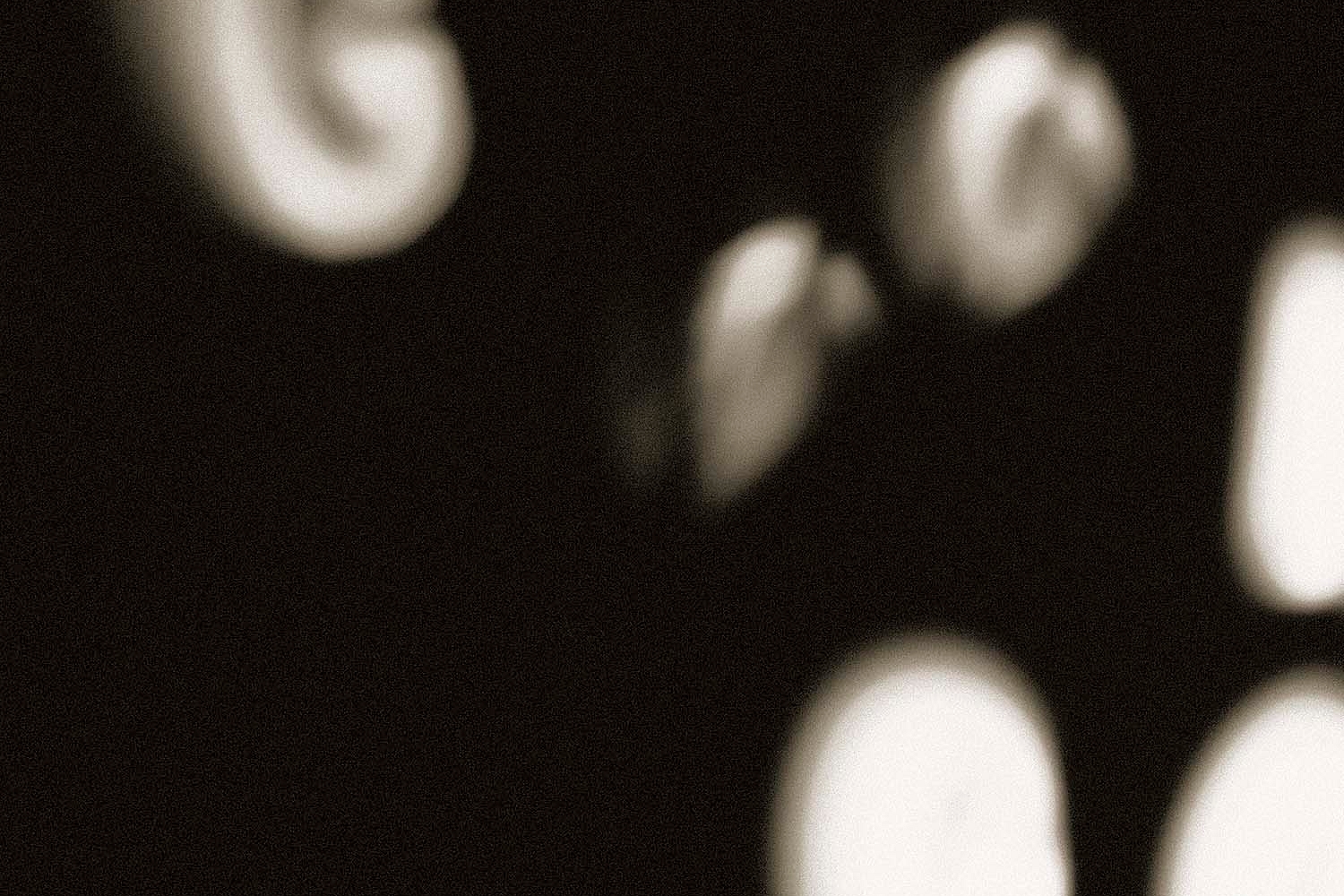
No Age - Goons Be Gone
2-5 Stars
There’s something slightly off.
4th June 2020, 7:50am
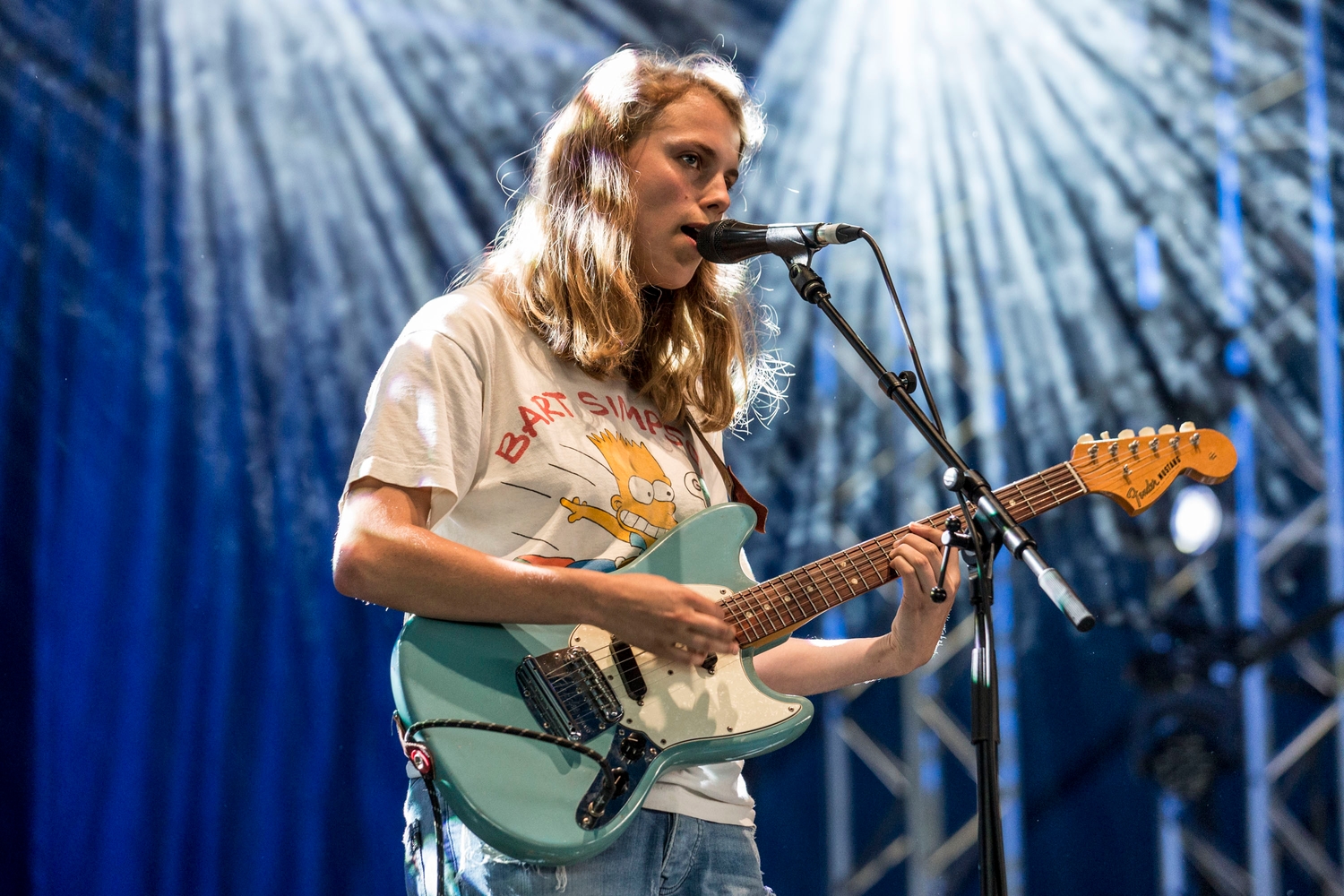
Marika Hackman, Yak, and No Age added to Visions 2018
They join the previously-confirmed IDLES, Nilüfer Yanya and others at the London all-dayer.
10th May 2018, 12:00am
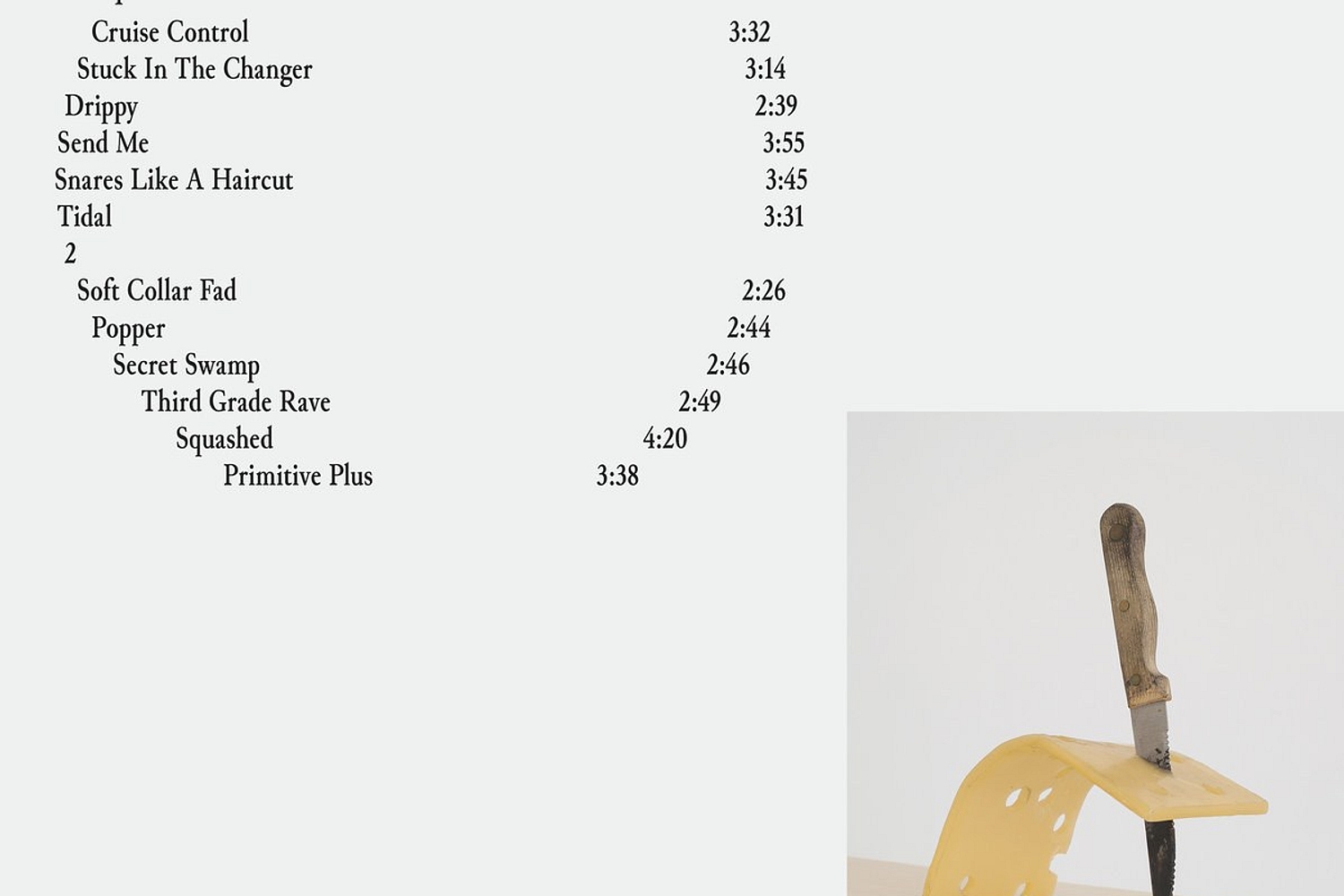
No Age - Snares Like A Haircut
4 Stars
Sharper and brighter than ever.
26th January 2018, 7:54am
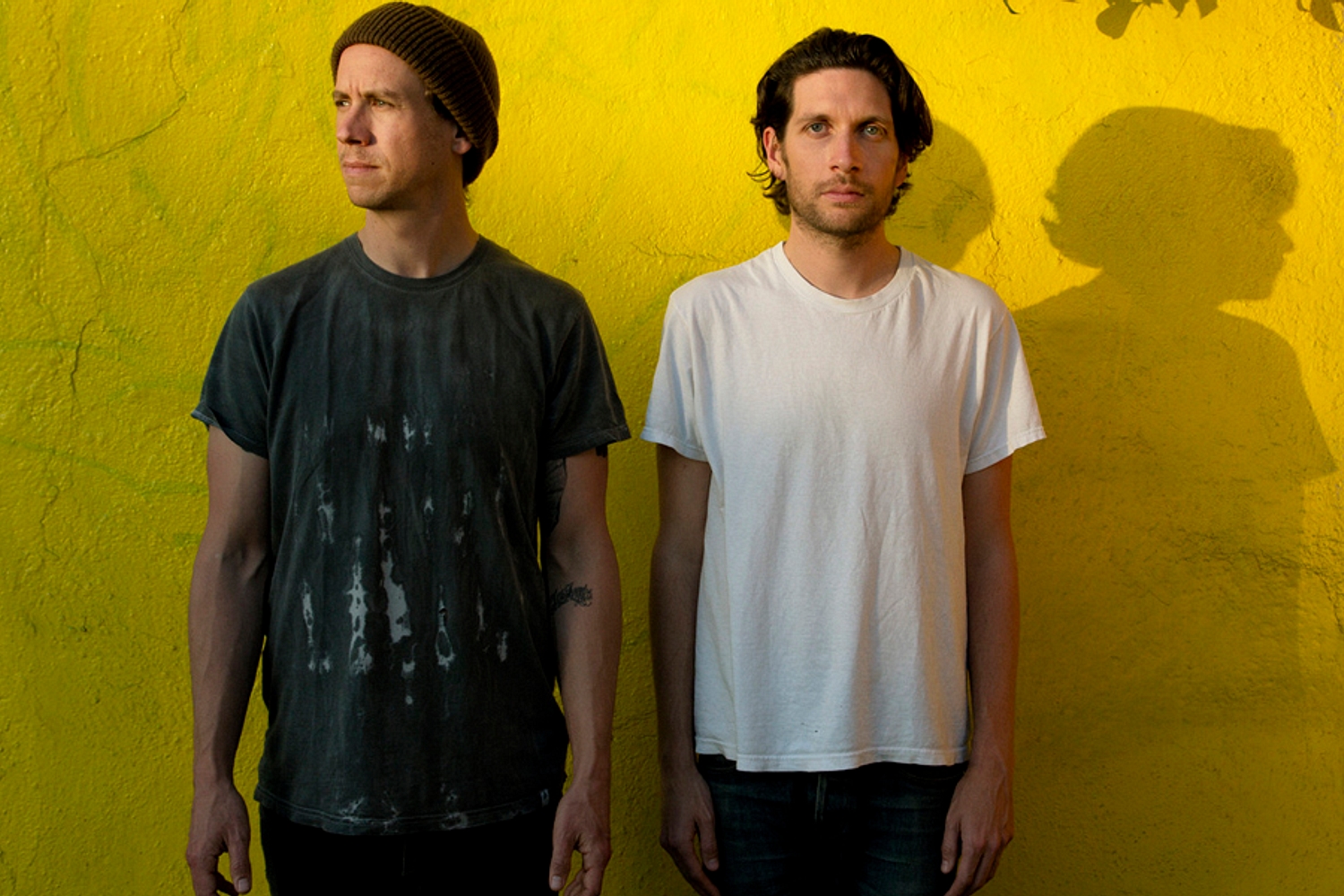
No Age cover Black Flag’s ‘Six Pack’ track
Standalone track is taken from a new 7” box-set, devoted to punk classics.
4th February 2015, 12:00am
Featuring SOFT PLAY, Corinne Bailey Rae, 86TVs, English Teacher and more!
